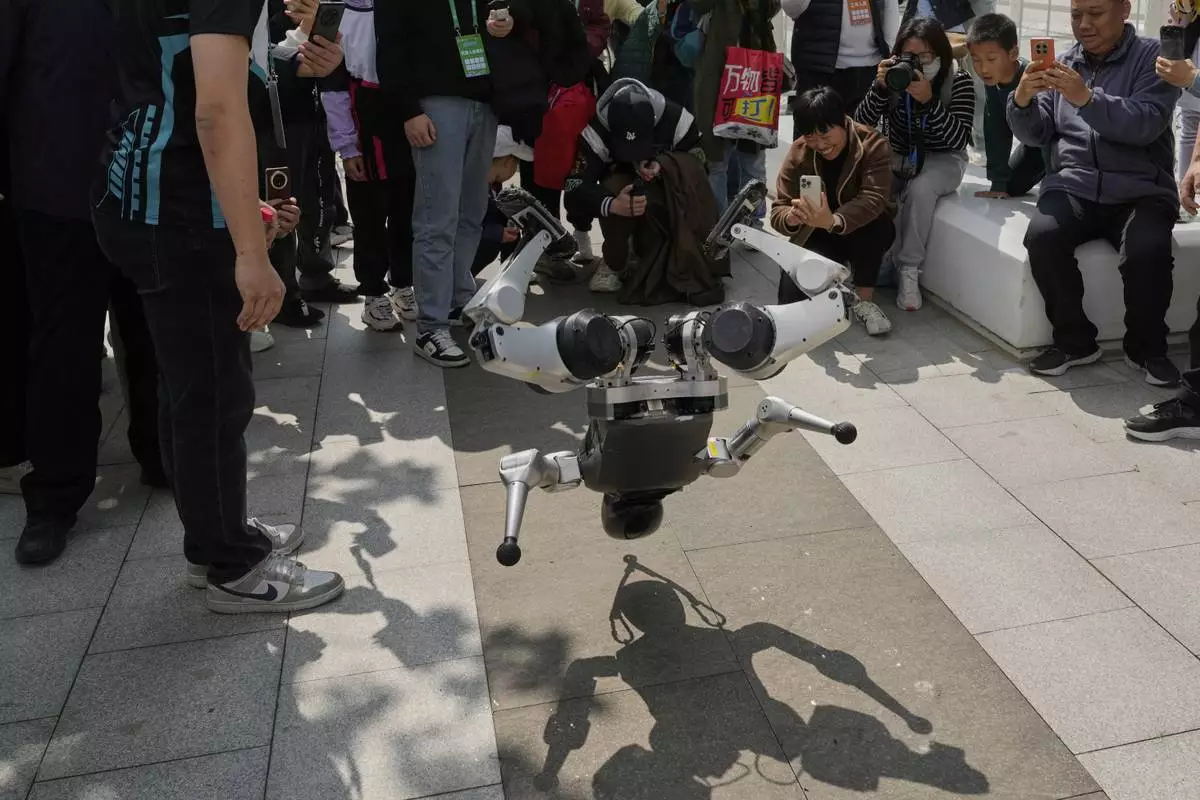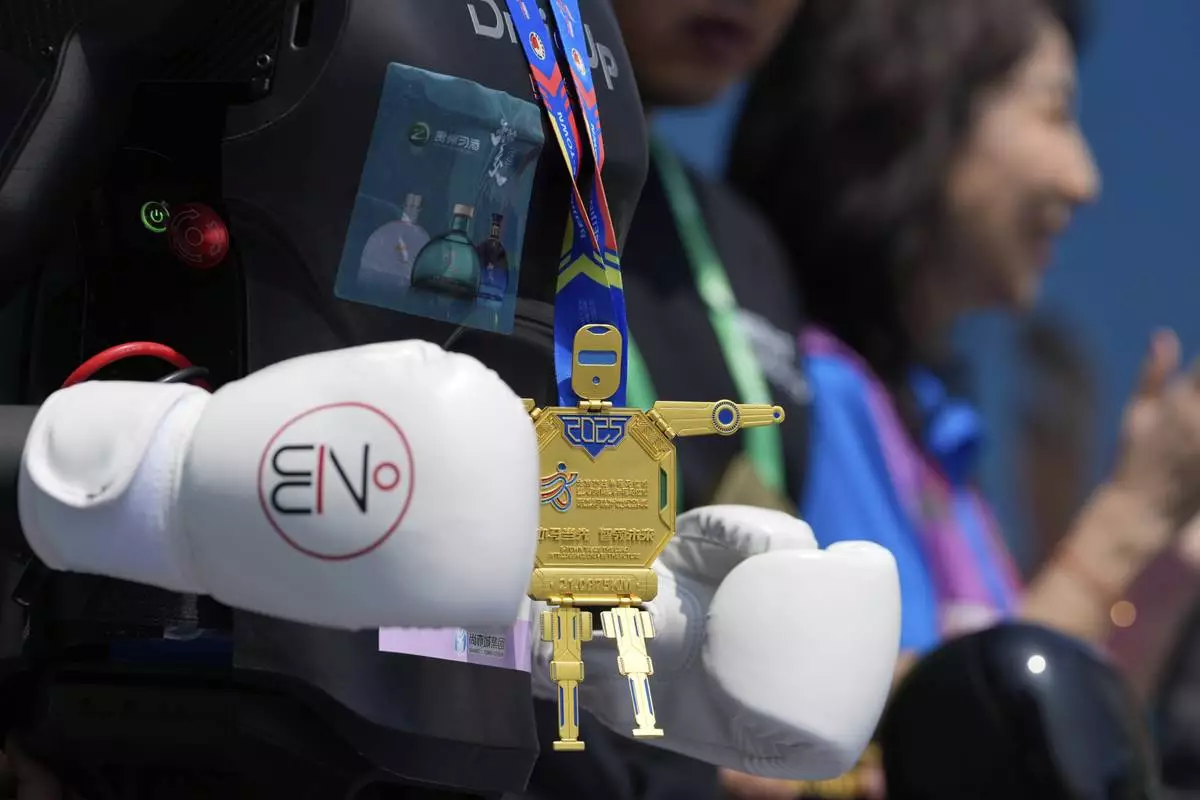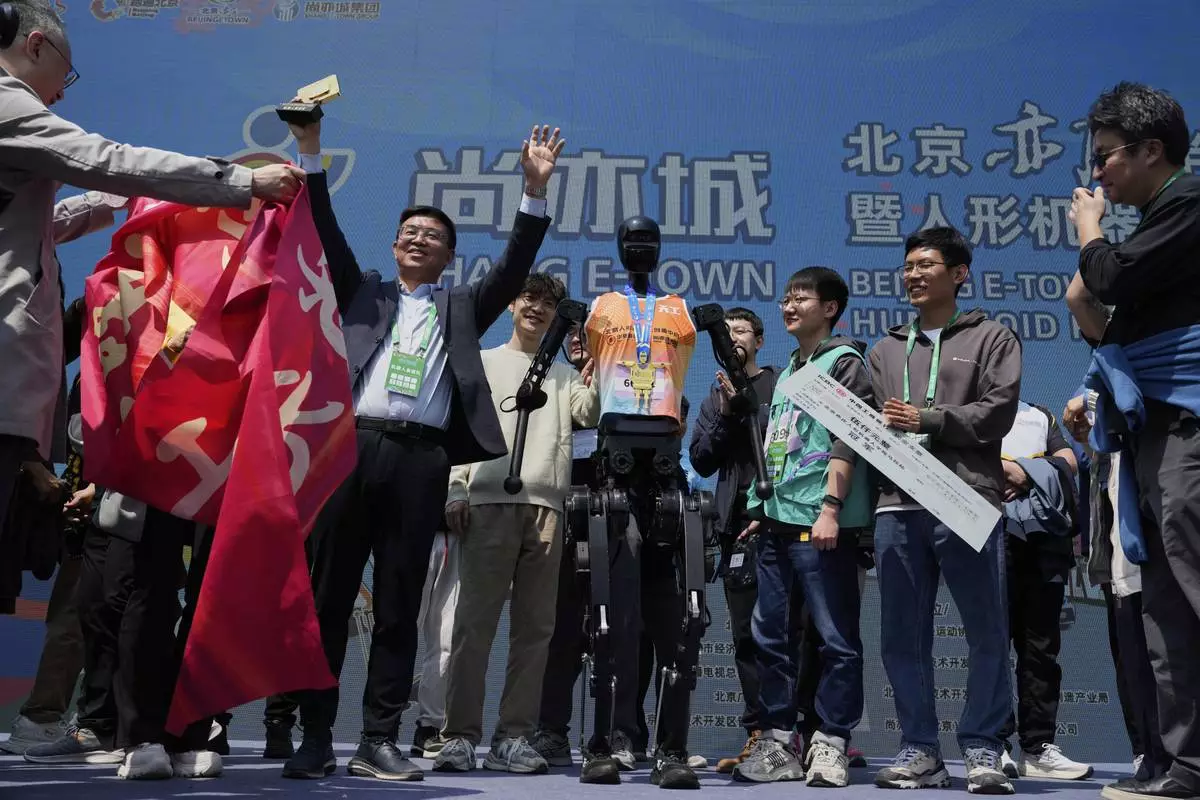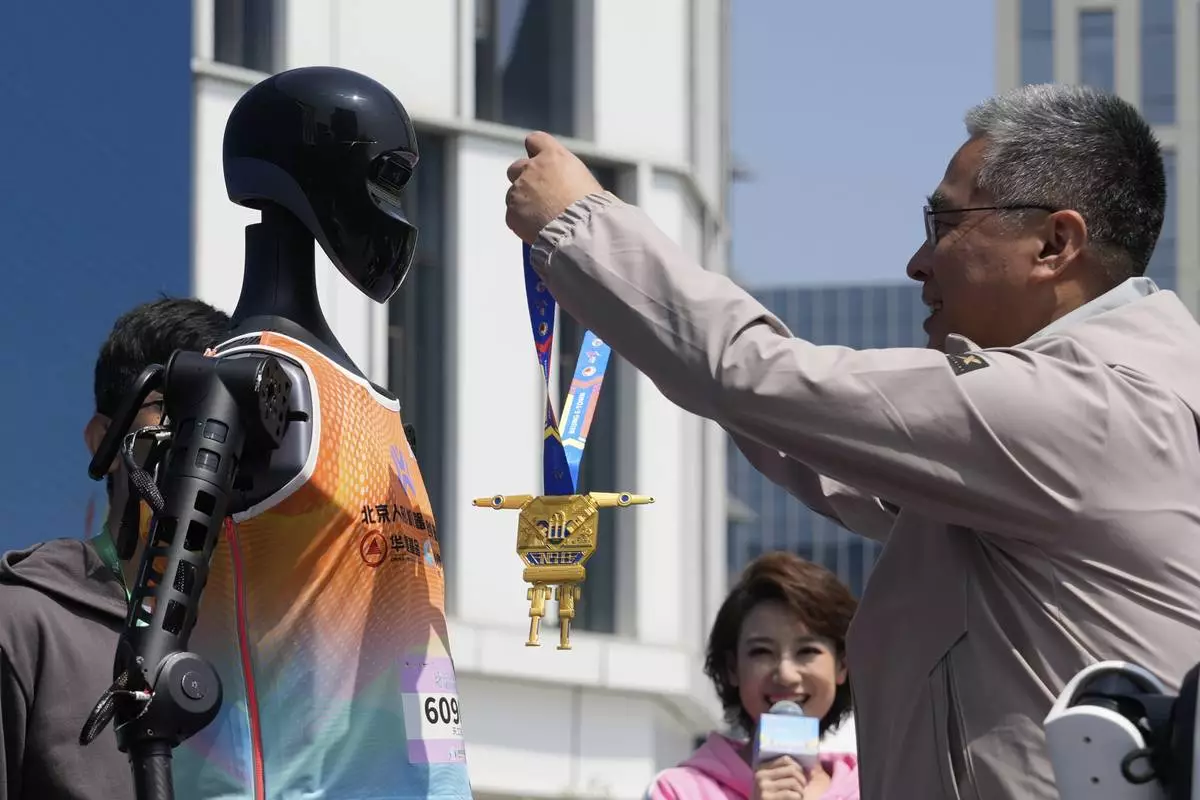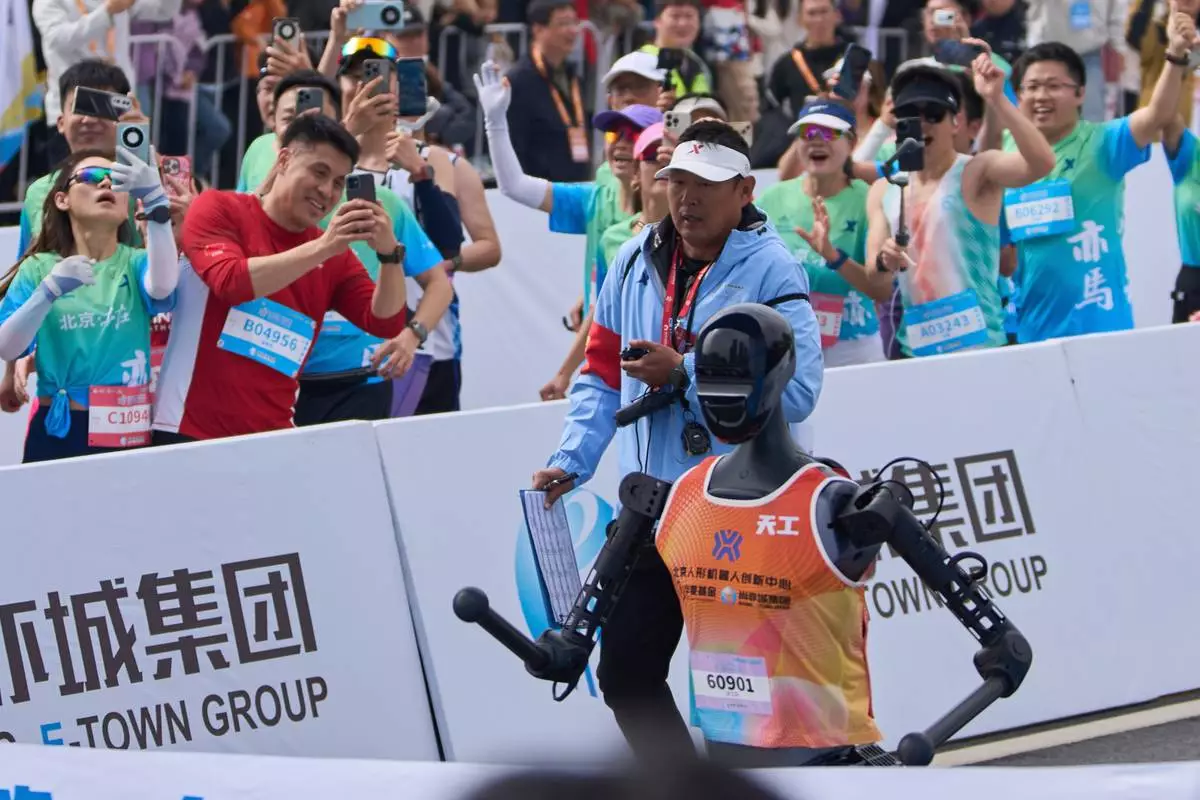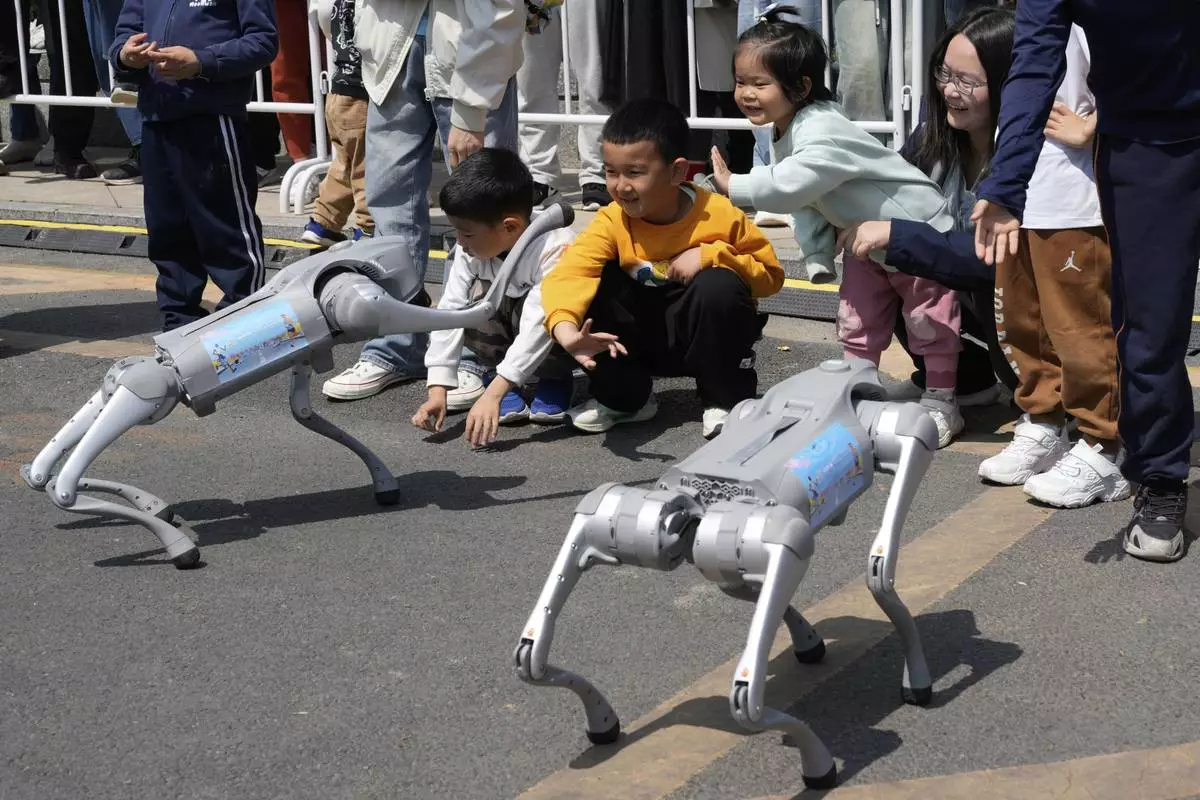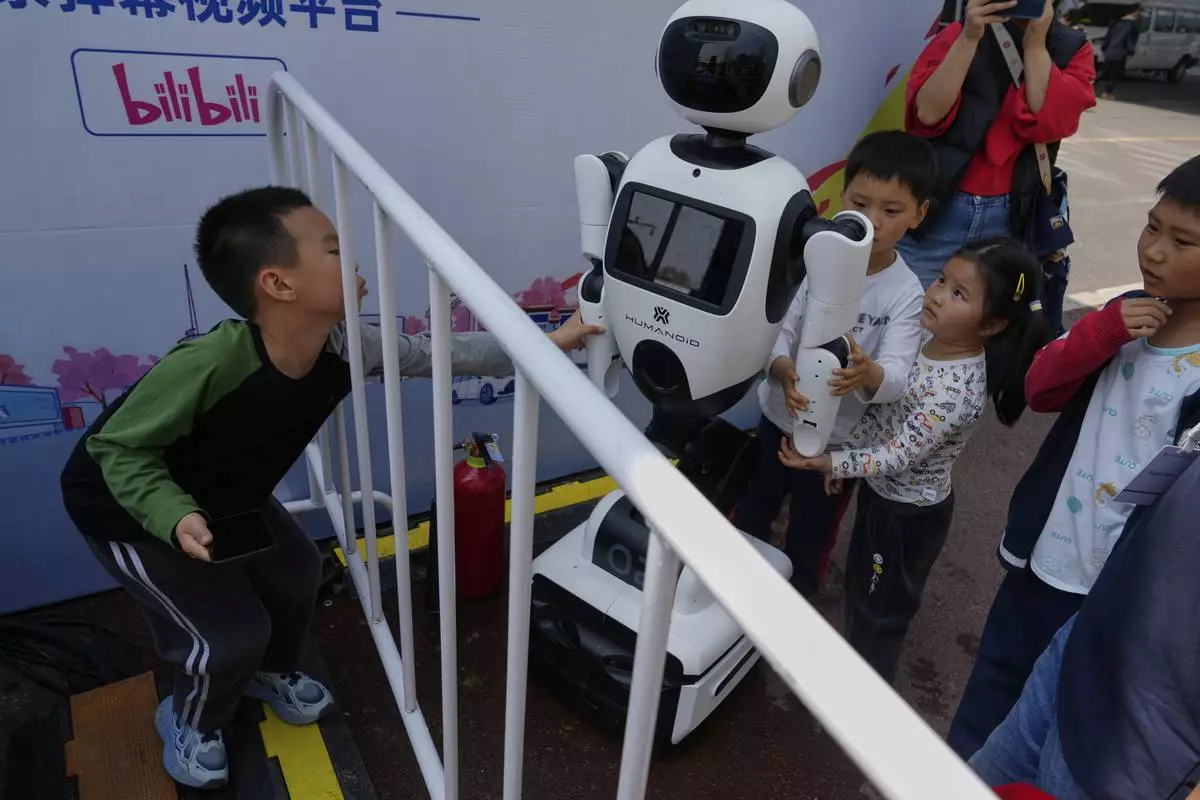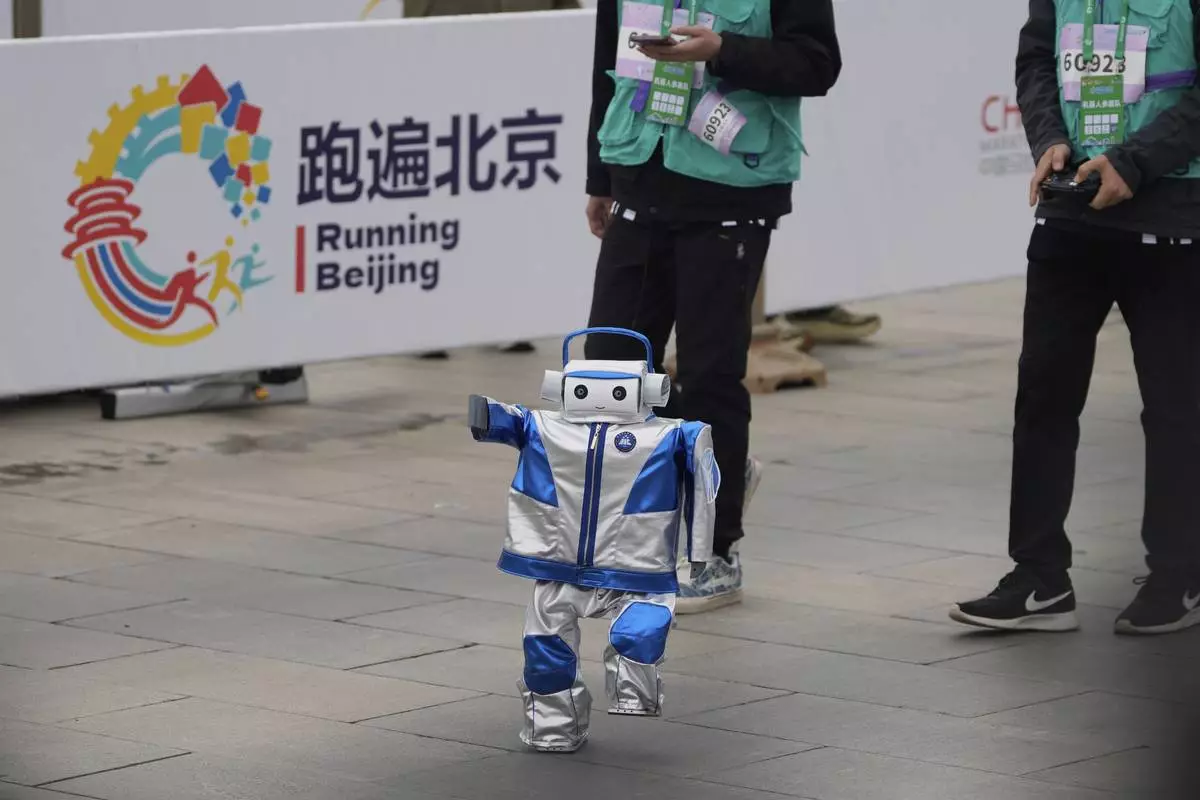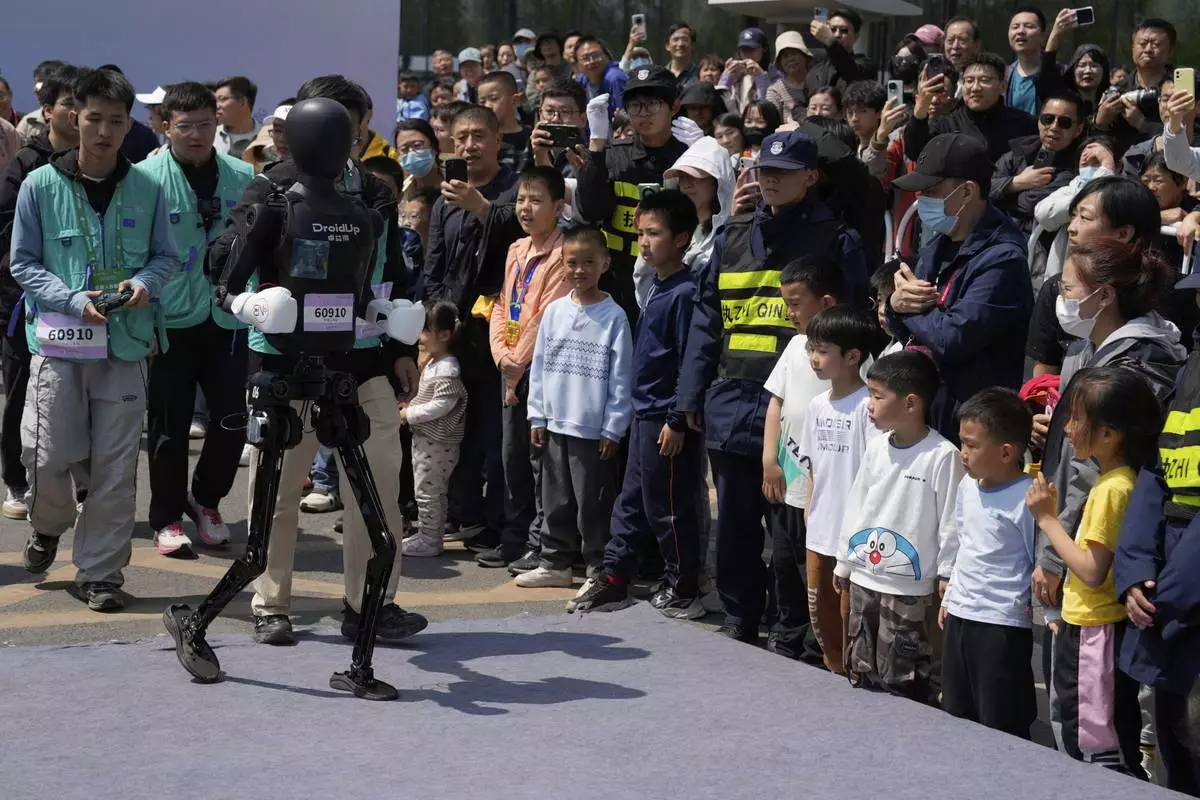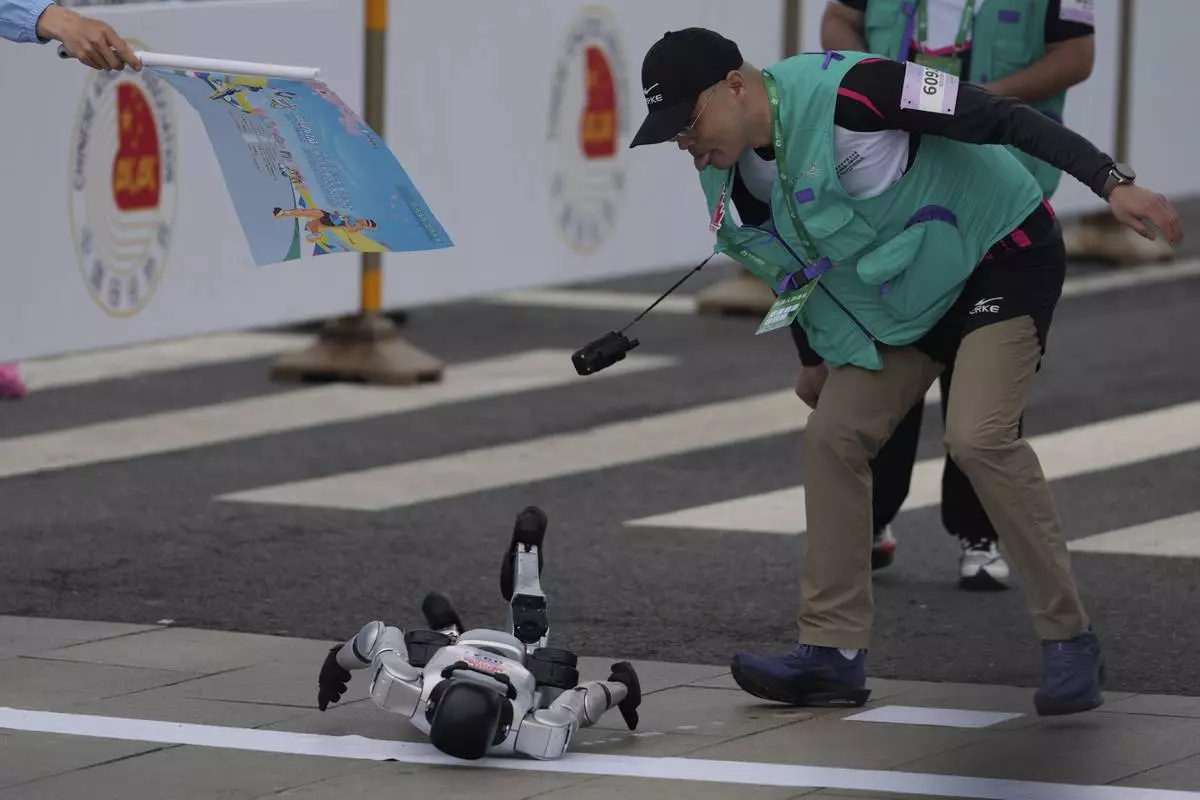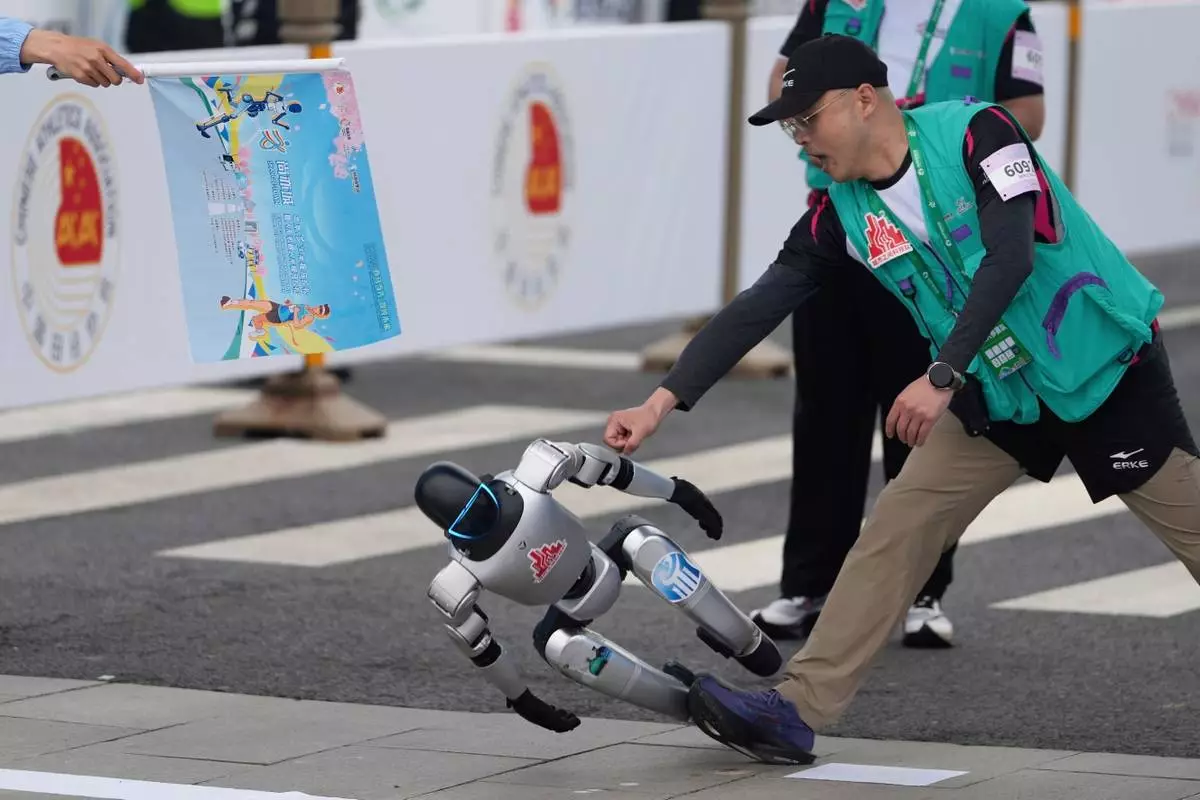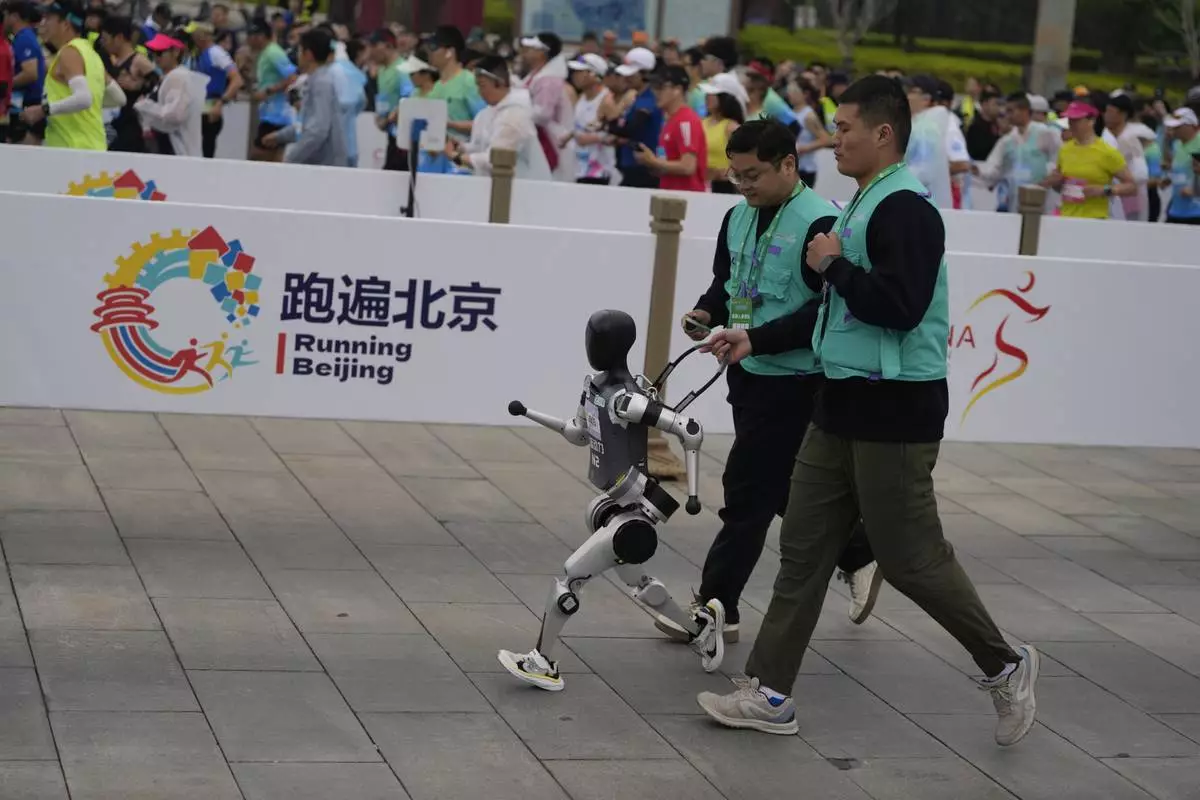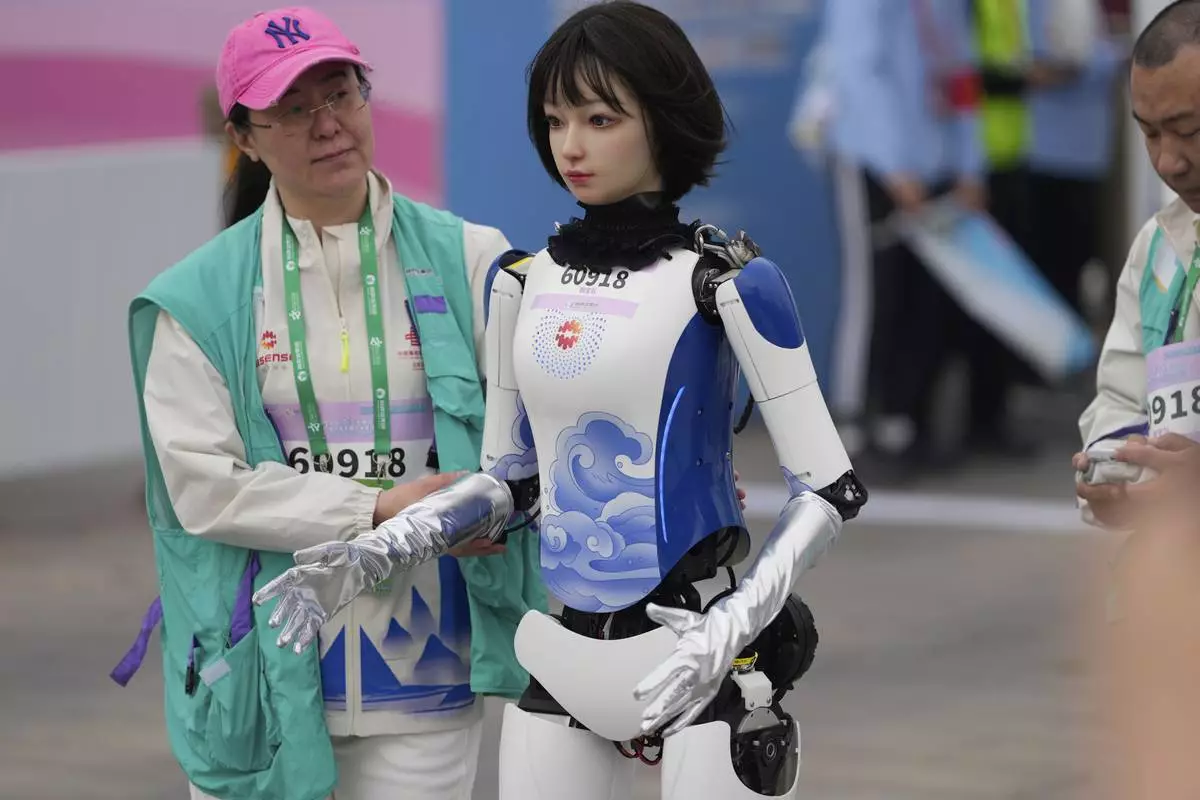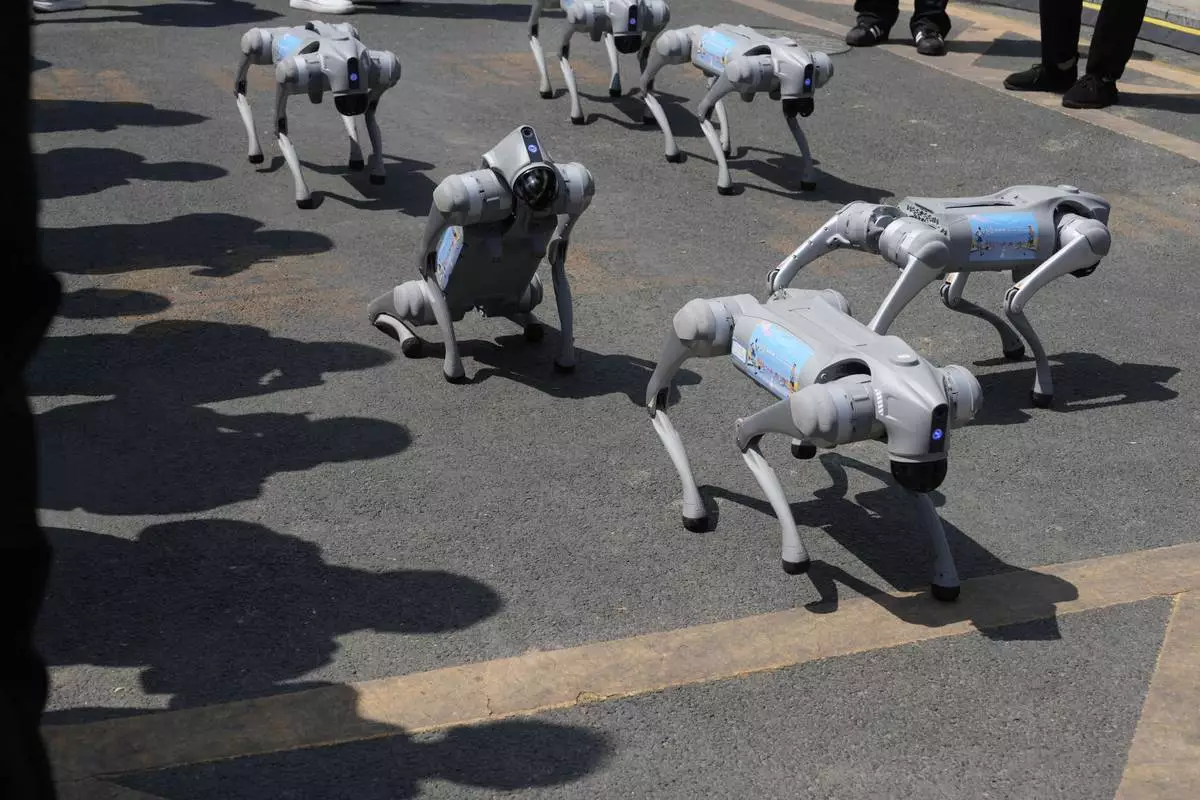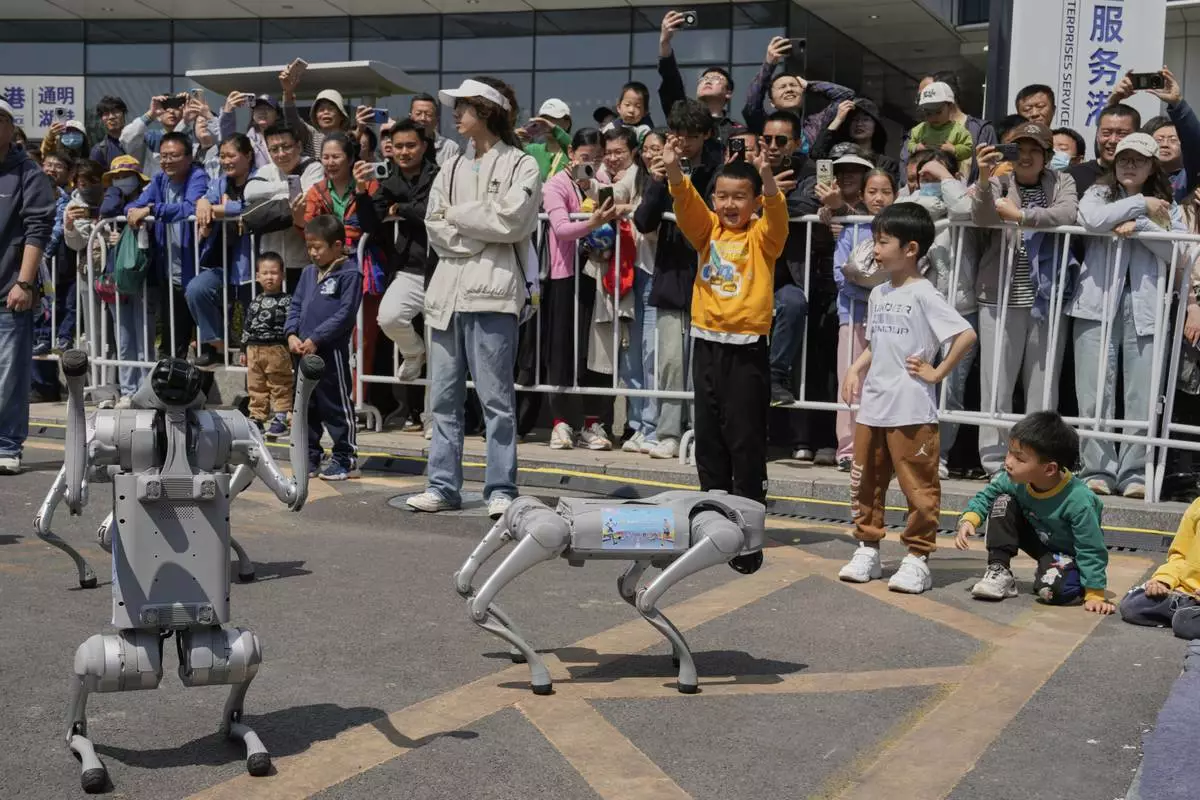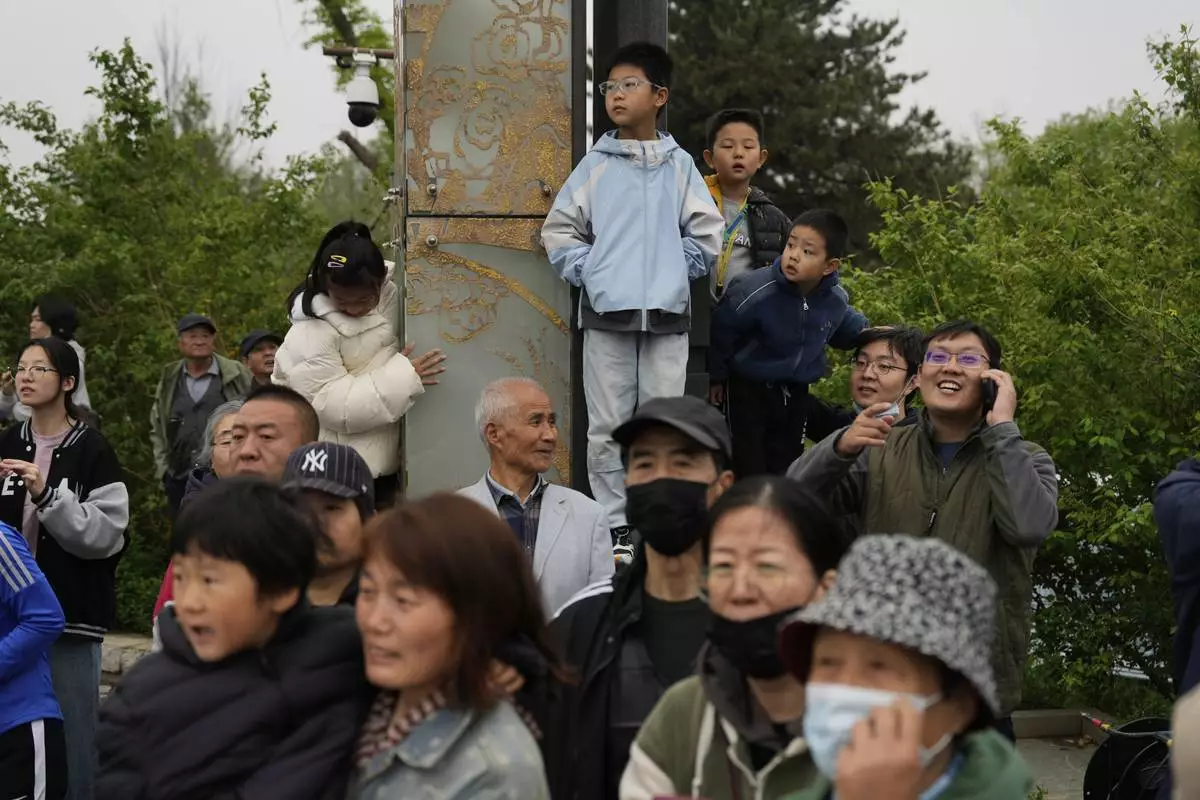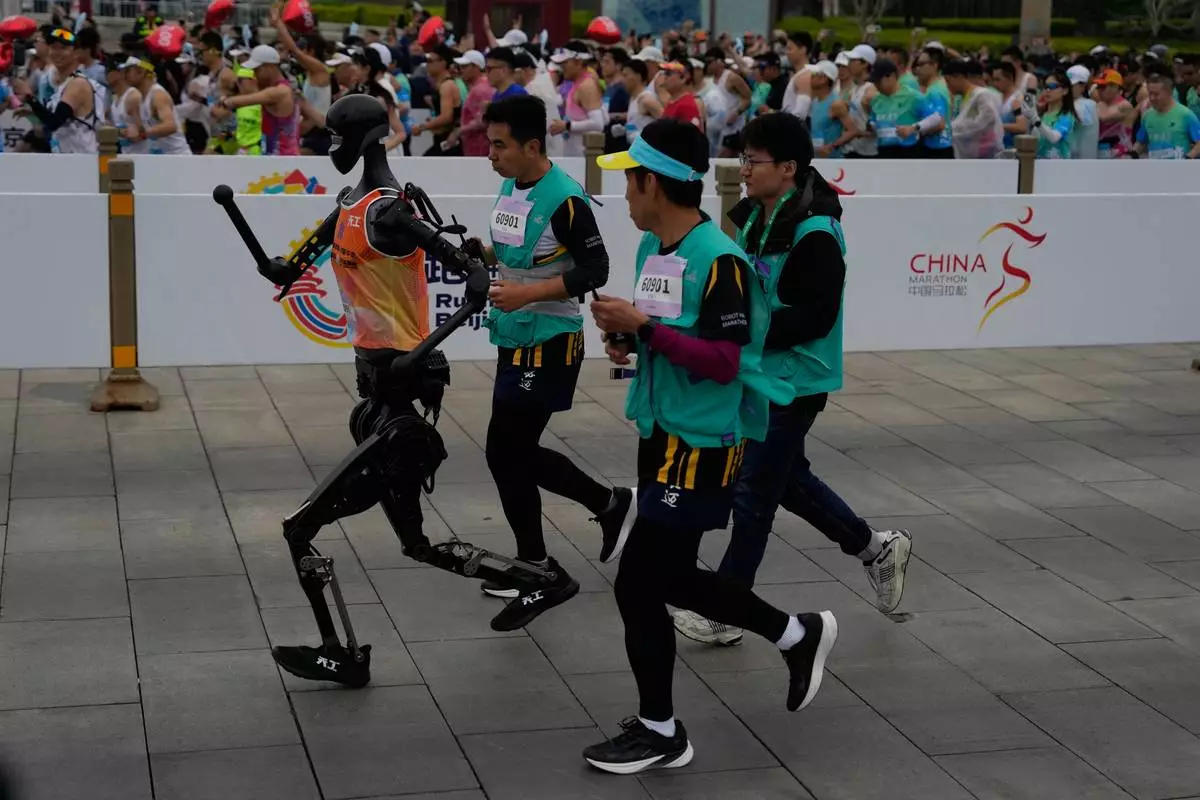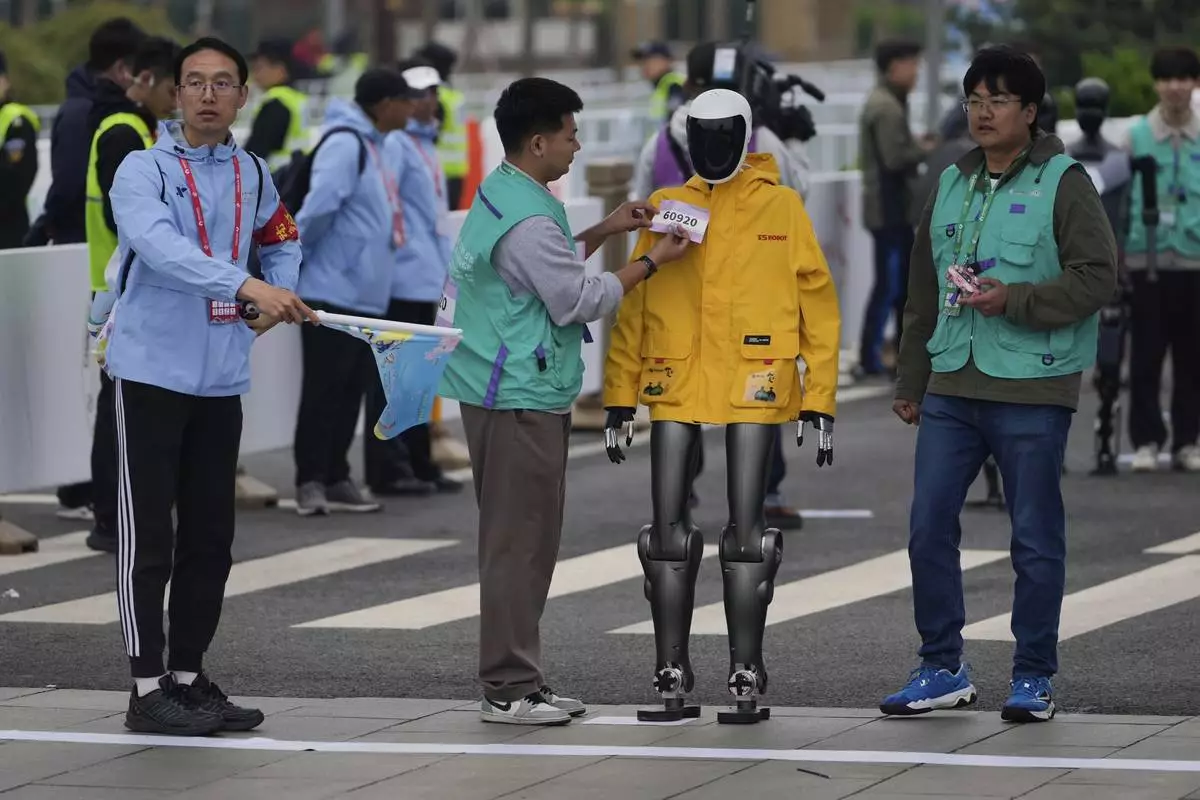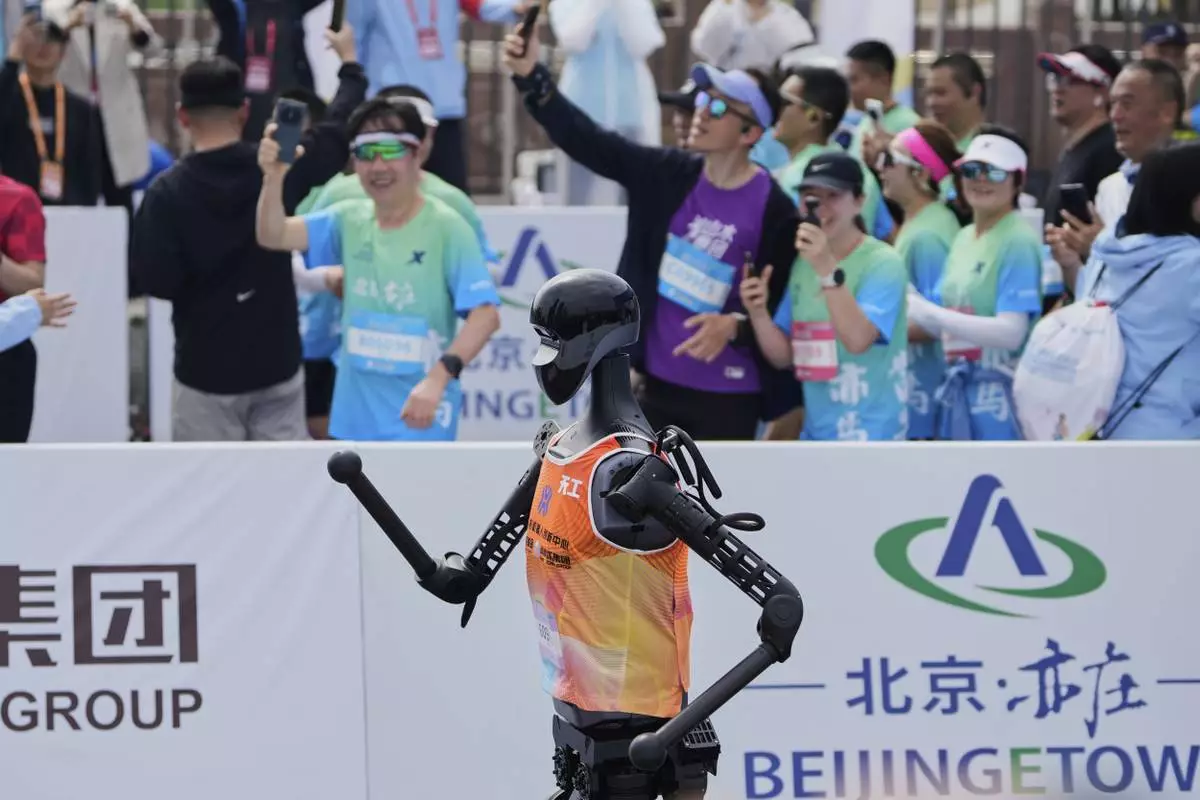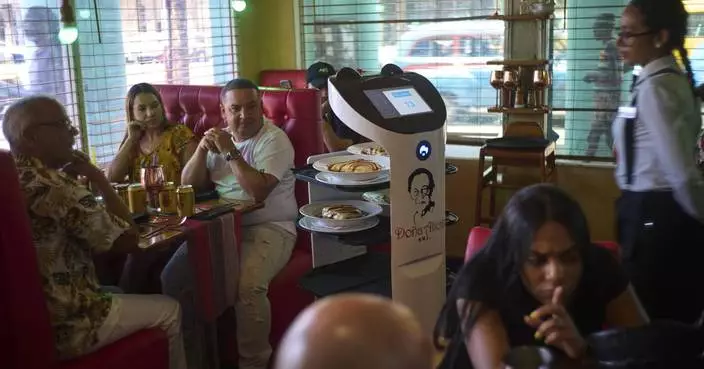Robot Pepper can tell jokes, show sympathy, lean in towards the runner and change eye colour to express emotion.
Scientists have developed a robot personal trainer to coach runners through an exercise programme on the treadmill.
Humanoid robot Pepper can tell jokes, show sympathy, lean in towards the runner and change eye colour to express different emotions.
The support is personalised based on the gym-goer’s heart rate, speed, personality type, mood and fitness level.
Pepper gained its social intelligence by being trained by a human fitness instructor on how to be an encouraging coach.
It learned when to offer praise during a workout and the cues that can motivate a runner to improve performance.
The robot was developed as part of a study led by human-robot interaction experts from Bristol Robotics Laboratory.
As part of the research, 10 people participated in sessions with the robot in a gym at the University of the West of England (UWE Bristol).
The group, aged between their 20s and 60s, attended three times per week for three months and were guided through the NHS Couch to 5K programme.
Human-robot interaction expert Katie Winkle said: “We wanted to test if we could transfer the intelligence of our fitness instructor, an expert with the know-how to get the best out of clients, into a robot so it could become an effective personal coach.
“We aimed to create an engaging motivational companion to get our runners through Couch to 5k, which is quite a long and drawn out exercise programme.”
Participants received guidance from two different versions of the robot.
The first was pre-programmed and gave standard instructions every 30 seconds based on the runner’s performance.
The second was a bespoke form of the robot that had been given input from a UWE Bristol fitness instructor.
Pepper observed the fitness instructor motivating runners and replicated his behaviours.
Results showed runners preferred engaging with the socially intelligent, human-like robot and performed better with it.
Miss Winkle said: “Understandably, they weren’t sure what to expect and when they started it was a bit of novelty.
“Some were energised by the robot and pushed themselves more than normal, and our fitness instructor was impressed with what the robot had learned to do.
“As time wore on, the participants began to treat the robot as a companion and the fitness instructor saw the robot as a colleague.
“This is really promising when we think about how robots might be used in the workplace in the future to work alongside humans.”
Researchers say the study was the first of its kind to feature significant participation from a human expert in a field.
The UWE fitness instructor was involved in designing Pepper’s actions, teaching it and then assisting with evaluation.
It is also rare for a research project to involve people interacting with a robot consistently over such a long time, the researchers say.
Dr Severin Lemaignan, senior research fellow at Bristol Robotics Laboratory, said: “Our work shows a robot could be really useful in the gym, especially for people who would perhaps feel embarrassed with a human personal trainer.
“It’s great to see the robot was considered a colleague by our gym coach: the robot helps provide better support to the gym clients; he doesn’t see it as a threat to his role.
“More widely, the study demonstrated the potential for robots to be useful and effective in the real world, with many potential applications.”
Bristol Robotics Laboratory is a collaborative partnership between UWE Bristol and the University of Bristol.



